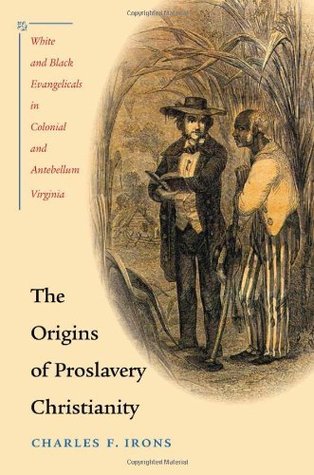At the same time that Godwyn demanded that blacks be included within the Church of England, he inadvertently helped engender a powerful pro-slavery argument. In seeking to overturn whites' objections to black participation in parish life, he not only cited the 1667 statute that conversion would not lead to emancipation, but he went much further and assembled a list of reasons why slaves' conversion was in slaveowners' best interest. In prioritizing the goal of bringing all ethnicities under the care of the church, Godwyn was apparently willing to leave intact the hierarchical relationship
At the same time that Godwyn demanded that blacks be included within the Church of England, he inadvertently helped engender a powerful pro-slavery argument. In seeking to overturn whites' objections to black participation in parish life, he not only cited the 1667 statute that conversion would not lead to emancipation, but he went much further and assembled a list of reasons why slaves' conversion was in slaveowners' best interest. In prioritizing the goal of bringing all ethnicities under the care of the church, Godwyn was apparently willing to leave intact the hierarchical relationship between masters and slaves. To this end, he argued too forcefully against owners' reservations about slave conversion and insisted that access to Anglican teaching would make enslaved men and women more efficient and less insubordinate: "So that this Authority of the Master is so far from being hereby diminished," he insisted, "that it is rather confirmed, and a stricter observance for that cause charged upon the Servants Conscience." The minister's own words elsewhere in his most famous pamphlet suggest strongly that Godwyn made such claims only for rhetorical effect and that he was actually opposed outright to chattel slavery. But his audience heeded the prophetic minister's concessions to slaveowners more than they did his criticism of slavery.23 White Virginians in the late seventeenth century still did
not take any substantive steps to expose their slaves to Anglicanism, but they gai...
...more
This highlight has been truncated due to consecutive passage length restrictions.


